As the days go by, I will continue to update and refine my herbal prevention and treatment suggestions as needed to keep pace with the growing body of information accumulating within the professional herbal world about what kind of herbs are best for prevention and early treatment of COVID-19. I want to emphasize “early” because this virus can cause changes rapidly, and it is important that any person experiencing symptoms is also in regular contact with a primary healthcare provider. The herbs discussed below are best utilized for prevention, at the onset of symptoms, and if symptoms remain relatively mild. Again, regular contact with a primary health practitioner is key.
That being said, my purpose here is to share complimentary health information based on traditional herbal practice that can help us bolster our physical, mental, and emotional defenses, and that may help some individuals avoid viral contraction, or possibly lessen the severity of early stage symptoms. Ultimately, my hope as an herbalist is to offer insight about relevant plant medicines that could help prevent the virus from progressing into more acute stages that require intense medical observation and possible hospitalization in otherwise healthy individuals.
Many of my suggestions below are based on the energetic teachings of Matthew Wood, R.H. (AHG), M.S., the traditional herbal treatment suggestions of Phyllis Light, as well as other leading, peer-reviewed publications by some of the U.S.’ most highly regarded Master Herbalists on the practice of traditional Western Herbalism and Traditional Chinese Medicine.
For millennia, plants have helped human beings to adapt and evolve, and there are specific plant medicines that have been used for centuries for some of the symptom patterns we are witnessing. It is wise to utilize their healing capabilities.
PREVENTION REGIMEN
No one can do it all, so please regard this list as a resource. While all of these suggestions, taken together, are indeed very helpful for maintaining good health and strong immunity, incorporating just a few into your daily health regimen is also beneficial!
-
Eat well. Consuming nourishing, cooked meals with plenty of cooked root vegetables, fresh fruits, leafy greens (wilted), and bone broths will help keep the stomach and digestive system balanced, which in turn enables the digestive tract to extract nutriunts from food in a more optimal manner. Greater nutrient extraction leads to stronger, healthier blood, which in turn strengthens all tissues and organ systems. It is important to avoid eating raw and chilled/cold foods and beverages on a regular basis, as they can weaken and slow digestion.
-
Brush your skin. Seriously! Skin brushing is a helpful daily selfcare ritual that helps keep our lymphatic system healthy and the skin open, so it can release toxins more easily.
-
Supplement Vitamin C and zinc. Increased intake of these two in paticular is especially beneficial. Rainbow Light or Innate vitamin brands are both good quality, food-based, and easily absorbed into the bloodstream.
-
Supplement essential fatty acids—Omegas 3, 6, and 9. My favorite is Nordic Naturals Complete Omega + D3.
-
Add some bitters to your day. A good bitters formula can significantly improve digestive health, and are very balancing to the body in general. My personal favorite is by Prairie Star Botanicals. It is one of the most balanced and useful bitter formulas I’ve seen, and is particuarly helpful for our needs at this time.
-
Add Adaptogens. Adaptogens are a special category of herb that help the body adapt to chronic stress, sustain normal metabolic function, and restore balance to varying systems of the body. In particular, adaptogens “increase the body’s resistance to physical, biological, emotional, and environmental stressors and promote normal physiologic function” (Winston, Adaptogens). While it is tempting to load up on adaptogens, too much of a good thing is too much of a good thing. Focus on just one or two instead, and take it twice daily. Here are some particularly helpful adaptogens to consider:
-
Astragalus - one of the best qi tonics known, particularly for building immune strength; rejuvenates all organ systems; a superior adaptogenic tonic to treat and prevent chronic illness. STOP astragalus at the first signs of fever. OK to resume after fever is completely broken. It is a superb preventative but should never be used in large doses during the acute stages of fever. Found in our Woodsman blend.
-
Chaga - a powerful immune enhancer, highly antioxidant and therefore useful as an anti-aging herb, anti-tumoral, rich with phytonutrients. Often used in small doses along with reishi. Coming soon in our Mycelia blend.
-
Moringa - a “superherb” with significant amounts of Vitamins C and A; lowers blood pressure, is an excellent source of nutrition, overall qi tonic (strenthening, energizing). Found in our Cicada & Jade Matcha blends.
-
Maca - a superfood and nutritional powerhouse; maca is an excellent source of vitamins and minerals, including vitamin C, copper, zinc, calcium, and iron. It contains all eight essential amino acids and plenty of phytonutrients. Energizing, mood-enhancing, hormone-balancing, fertility enhancing. Maca balances and strengthens the body. Found in our Jade Matcha blend.
-
Reishi - one of the most revered longevity tonics on the planet. Health benefits are myriad, and include but are not limited to: anti-inflammatory, hormone regulation, anti-cancer, neuroprotective, liver-protective, immune enhancer, cardioprotective. Should be taken in small, regular doses. If you had to choose one adaptogen/mushroom only to take daily, I recommend Red Reishi. Coming soon in our Mycelia blend.
-
Siberian Ginseng (Eleuthro Root) - a powerful immunomodulator and energy tonic, increases stamina, mental alertness, and sense of wellbeing; improves general resistance to infectious disease. Found in our Woodsman & Huntress blends.
-
-
Drink herbal tonics regularly. “Tonic” herbs help build, strengthen, and nourish the tissues of the body, helping to restore tone and function, thus supporting overall health (Irvine; Metzger, n.d.; Tilgner, 1999). While there are many different categories of tonics, I focus here on five main tonic categories: astringents, warming aromatic/digestive tonics, immune tonics, nervines, and respiratory tonics. Read on for information about specific herbal tonics that are very helpful right now.
-
I am going to address Nervine tonics here, as they are an important herb category for coping with the stress and anxiety so many of us are experiening right now. Nervine herbs help restore calm and strength to the nervous system and heart center. They are grounding, nurturing, restorative, and can help us recover from nervous depletion, mild depression, overworry, and overwhelm. It is best to use this category of tonic herbs daily for best results.
-
-
Keep a quality Fire Cider on hand. I’d recommend a traditional recipe (available online), or you can check out my personal favorite by Spiritus Vitae here. Take 3-6 doses daily at the onset of any sinus, throat, or lower digestive symptoms.
HERBAL TREATMENT SUGGESTIONS FOR EARLY STAGE SYMPTOMS
Drinking warm beverages frequently for both prevention and early treatment is recommended because it helps keep the throat moisturized, the body properly hydrated, the stomach warm (which supports healthy metabolism), and the digestive system and bowels functioning well (Wood and Light). These are all basic defense mechanisms we want to keep working as optimally as possible.
Because COVID-19 is a predominately “dampness” related virus (it can cause extreme fluid build up in tissues—particulary in the lungs), we want to use herbs that “warm the interior” (Wood)—specifically, warming aromatics and digestive tonics that warm the stomach and digestive organs, and literally create a gentle, radiating heat inside the core of our body. These herbs are often used to treat acute upper respiratory illness—particularly when our lungs and sinuses are super wet and goopy, and when we have chills and body aches (Irvine). Warming aromatics boost our metabolic function, help astringe and strengthen boggy tissues, help improve circulation and immune function, and help our bodies kill pathogens. Here are some of the most helpful options to choose from to help keep up good interior warmth and balance:
-
Fire cider (Cayenne, Garlic, Onion, Thyme, Horseradish, Angelica, etc.) - I can’t think of many herbal formulas more appropriate for helping keep the stomach, digestive system, lungs, and sinuses all functioning well than a high quality fire cider. Garlic, Cayenne, and Ginger help thin out thick, sticky mucus and promote drainage, and as a whole, fire cider stimulates circulation, warms the periphery, and promotes a detoxifying sweat, which can also help break a fever.
-
Hot Toddy (Lemon juice, Ginger, Honey, Hot water) - A simple and effective warm drink for balancing and strengthening the gut. This is a good one to drink at least twice daily for prevention, but regularly throughout the day if you exhibit symptoms, such as sore throat, cough, or bowel irregularities.
-
Nigella seed / Black Cumin oil - Matthew Wood swears by nigella as a superior immune modulator. Used for sore throat and immune support. Drink as a tea, 2-3 cups daily beginning at the first signs of illness.
-
Chai Spices (Ginger, Cinnamon, Clove) - Wonderful herbs for both prevention and early treatment. However, avoid chais with a high black pepper and cardamom content. If a chai makes your tongue burn, it is too hot, and too drying to the stomach. Just be aware of this distinction: warming is ideal; hot is not. Chai spices are found in Circe, Manipura Chai, Agni Chai, and Woodsman.
-
Fenugreek - This humble seed is amazing. It stimulates healthy lymphatic drainage, is warming, mucilaginous, soothing, and highly nutritive. It is an excellent remedy to soothe the mucosal linings of the gastrointestinal tract and respiratory system (Wood). It is a valuable herb for treating chronic coughs, bronchitis, asthma, influenza, allergies, and “hardened mucus” that is difficult to expectorate. (Not suitable for pregnancy in large or frequent doses). Fenugreek is found in Nutriunt and Manipura Chai
-
Fennel - Another fantastic digestive aid that helps thin unhealthy mucus. Fennel is a beneficial herb for the lungs, helping to release mucus in stubborn cases of bronchitis (Wood). It is also indicated for shortness of breath and “stoppages in the lungs” (Wood). (Not suitable for pregnancy in large or frequent doses). Fennel is found in Circe, Nutriunt, and Woodsman.
Recommended teas for warming the interior: Circe, Manipura Chai, Agni Chai, Nutriunt
In addition to warming aromatics, we also want to use astringing tonics to balance the excessive dampening effects COVID can have upon the tissues of the body—particularly lung tissue. In Western Herbalism, we use astringing herbs to help tonify cell barrriers and tone susceptible tissues of the body (in this case, lungs, sinuses, gut, etc.) so that they can more effectively process and eliminate excess fluids. Some excellent choices from this category are Horsetail, White Oak Bark, Red Raspberry leaf and fruit, and Marshmallow root and leaf, as well as sour foods and herbs, such as Hibiscus, Lemon, and Citrus peel.
Recommended astringing teas: Circe, Botanist, Huntress, Nyx, Kalliste
Finally, Matthew Wood shares that COVID-19 is dangerous because it can quickly efface the cilia in our lungs, trachea, and larynx that keep fluids flowing up, allowing the lungs to expectorate. Nature has given us some truly remarkable plant medicines that are categorized as respiratory tonics. Respiratory tonics help strengthen and protect the cilia, treat dry cough and depressed cough reflex, and help prevent excessive mucus build up and secondary infections. Here are a few outstanding herbs to consider from this category:
-
Boneset - one of the most valuable western herbs we have to heal from influenza with chills. It is particularly beneficial for treating “bronchial [mucus] settled in the lungs, with [weak, flabby] mucosa and lack of cough reflex; especially in old[er] people [and] debilitated cases” (Wood). Traditionally, it is a powerful remedy for immune stimulation and the treatment of both malaria and influenza. Generally used in small doses of 1-3 drops, every 2-4 hours.
-
Elecampane - also one of the most important herbs for COVID-19 treatment. It is particularly important when there is heavy mucus in the nose and throat, or for helping expectorate thick mucus that is stuck in the bottom portions of the lungs. Elecampane is found in Woodsman.
-
Mullein - one of the most important herbs to try in the early stage of COVID-19 treatment. Mullein is a specific remedy for dry, irritable cough, particularly in situations where the cilia of the lungs are worn down or inflamed (Wood). Mullein is a specific remedy for cillia in the upper respiratory system. This herb happens to be a Nebraska native! Mullein is found in Circe and Remedium.
-
Rosemary- a warming aromatic that is helpful for treating acute upper respiratory infection, fevers, phlegm, coughs, and colds. Rosemary is found in Einstein.
-
Spruce (either spruce needle tea or spruce essential oil diffused) - opens up the lungs and sinuses when breathing feels oppressed.
-
Thyme - warming and stimulating, high in anti-microbial volatile oils that “open pores, thin mucus, and move fluids thorugh the tissues” (Wood). Specific for whooping cough, chills, cold constitutions, sepsis, and stagnant, stuck mucus. It is widely used for infectious respiratory illness, including bronchitis and pneumonia, and instances of highly irritated mucosa with constant coughing. Thyme relaxes the bronchial tubes which is why it’s helpful in asthma and whooping cough. It’s an expectorant which helps people bring up mucous. This is one to plant in your garden, folks! Thyme is found in Remedium.
Recommended respiratory tonic teas: Circe, Remedium, Woodsman
Please note that this information has not been reviewed by the FDA, and is for educational purposes only.




